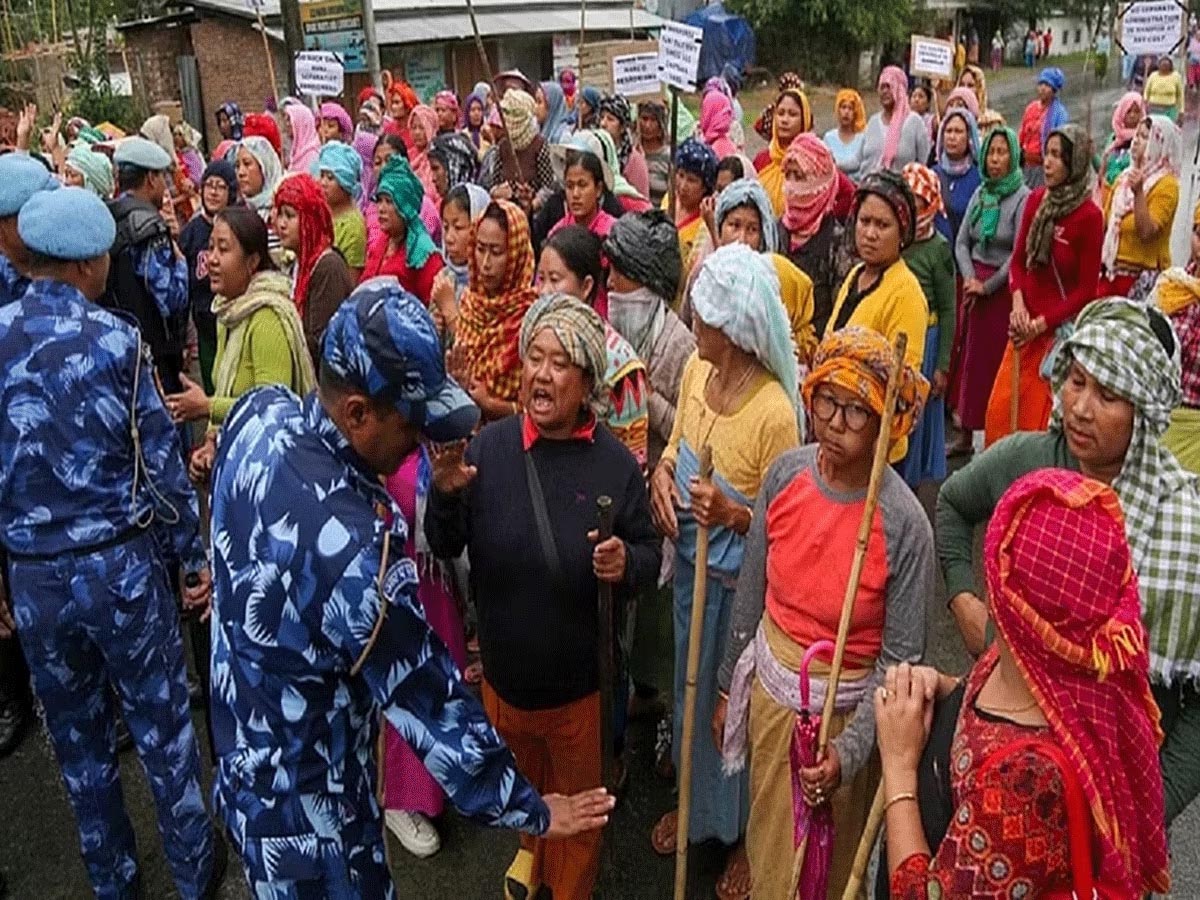Manipur | The Army has urged people to help them restore peace in Manipur, saying women activists are deliberately blocking roads and hampering operations of security forces in the violence-hit northeastern state. The Army’s ‘Spears Corps’ shared a video of some such incidents on Twitter late on Monday and said such “unwarranted interference” deters the security forces from taking necessary action in time. The statement came two days after a standoff between the army and a women-led mob at Itham village in Imphal East district, forcing the security forces to release 12 militants hiding there.
Spears Corps tweeted, “Women activists in Manipur deliberately blocking roads and obstructing security forces operations. Such unwarranted interference prevents security forces from taking necessary action in time to prevent loss of life and property during critical situations. “He said,” The Indian Army seeks support from all quarters in our efforts to restore peace. appeals to. Help us help Manipur.” Officials had said the army took a “mature” decision not to put civilian lives at risk after a standoff between a women-led mob and security forces at Itham village in Imphal East on Saturday. Decided” and moved away with the recovered arms and ammunition. This ended the impasse.
Security forces cordoned off Itham village on Saturday, where 12 members of the banned Meitei militant group Kanglei Yol Kan-na Lup (KYKL) were hiding. This action was followed by a standoff between the crowd and the soldiers. KYKL is a Meitei militant group, which has been involved in several attacks, including the 2015 ambush of a six Dogra unit. Explain that more than 100 people have died in the ethnic violence that broke out between the Meitei and Kuki communities in Manipur in early May. The clashes began after a ‘tribal solidarity march’ was organized in the hill districts on May 3 to protest against the Meitei community’s demand for Scheduled Tribe (ST) status in Manipur. Meiteis constitute 53 percent of Manipur’s population and live mainly in the Imphal Valley. At the same time, tribal communities like Naga and Kuki constitute 40 percent of the population and live mainly in the hill districts.
In Manipur, women are deliberately creating disturbance in the operation.
